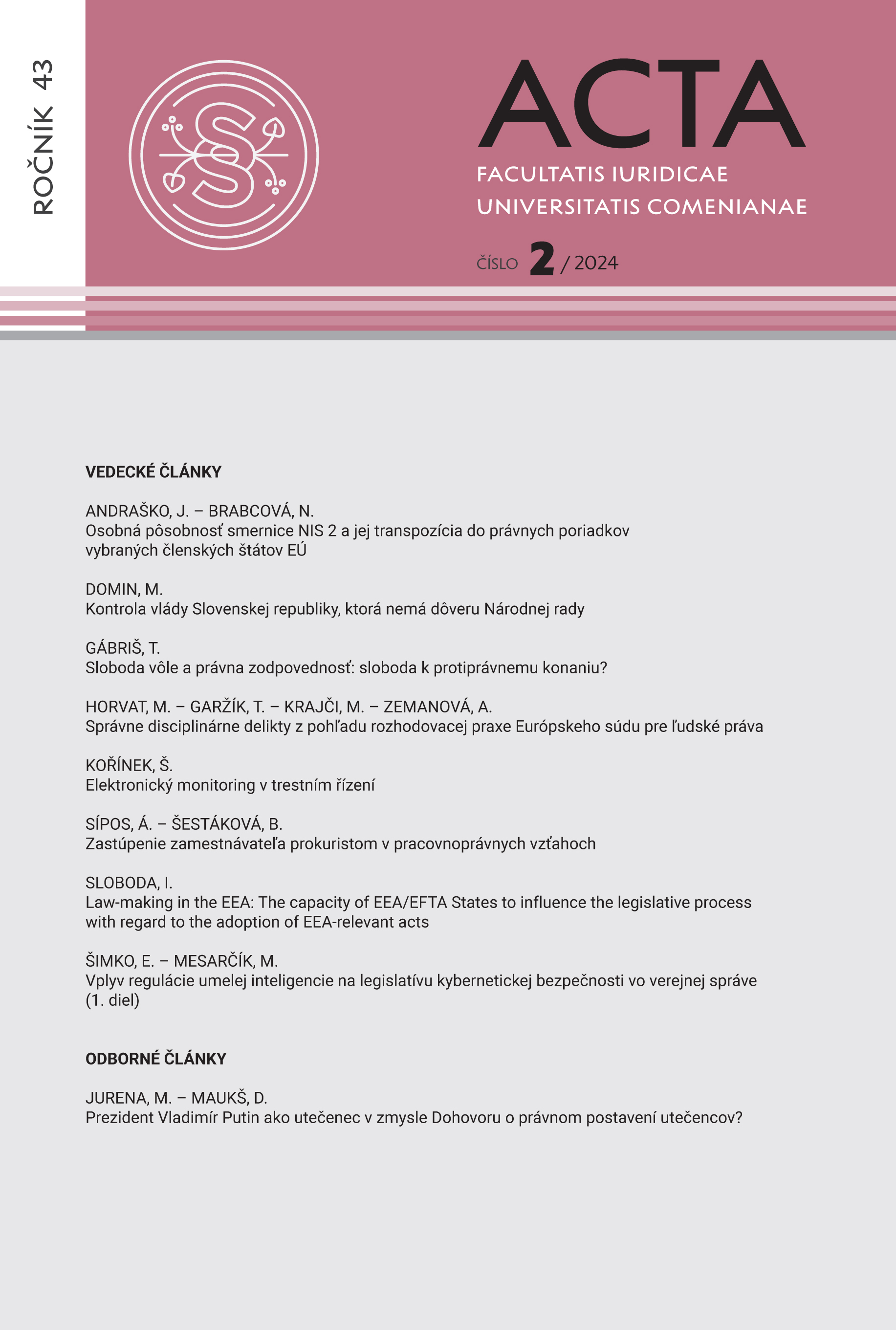Vplyv regulácie umelej inteligencie na legislatívu kybernetickej bezpečnosti vo verejnej správe
(1. Diel)
DOI:
https://doi.org/10.62874/afi.2024.2.08Kľúčové slová:
umelá inteligencia, kybernetická bezpečnosť, informačné technológie vo verejnej správeAbstrakt
Rýchly rozvoj umelej inteligencie (AI) výrazne mení spôsob fungovania rôznych oblastí spoločenského a hospodárskeho života, vrátane verejnej správy. Táto technológia prináša so sebou nové možnosti, ako sú automatizácia procesov, efektívnejšie spracovanie dát a poskytovanie kvalitnejších služieb občanom. Na druhej strane však AI predstavuje aj nové hrozby, najmä v oblasti kybernetickej bezpečnosti, keďže zvyšuje riziká útokov na digitálne systémy a infraštruktúru. Preto je nevyhnutné, aby sa existujúca legislatíva kybernetickej bezpečnosti vo verejnej správe prispôsobila týmto technologickým zmenám. Cieľom tohto článku je detailne analyzovať, akým spôsobom regulácia AI ovplyvňuje legislatívu kybernetickej bezpečnosti vo verejnej správe Slovenskej republiky. Hlavnou súčasťou skúmania bude dôkladná analýza dopadov nariadenia Európskej únie č. 2024/1689, známeho ako Akt o umelej inteligencii, na právne predpisy týkajúce sa kybernetickej bezpečnosti a ich aplikáciu v praxi. Výsledkom bude identifikácia kľúčových oblastí, v ktorých sa vyžadujú úpravy a doplnenia legislatívnych rámcov.
Downloads
Publikované
Číslo
Sekcia
License
Copyright (c) 2024 Acta Facultatis Iuridicae Universitatis Comenianae

This work is licensed under a Creative Commons Attribution-NonCommercial-NoDerivatives 4.0 International License.

